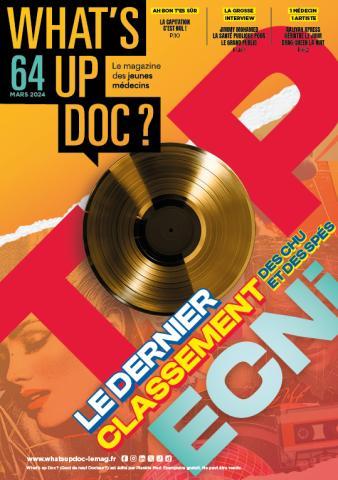Dr. Clapper: Good morning, Mr Toll. How can I help you?
Mr Toll: I think I may have conjunctivitis. My left eye has become a bit sore over the last few days, and it’s becoming rather annoying.
Dr. Clapper: Let me see. Hmmm, yes, it’s definitely rather reddish, but that might be because you’ve been rubbing it. Could I ask you to close your eyes as tightly as possible? Thank you. And now could you raise your eyebrows? Fine. Now, I’d like you to smile. OK. And now, could you whistle a tune for me? Thank you.
Mr Toll: Strange, I can’t seem to whistle. I can’t pucker my lips properly.
Dr. Clapper: Right. Just one last thing – can I ask you to read this short text? Great, Thank you.
Mr Toll: What’s the problem, Doctor?
Dr. Clapper: You said it happened gradually over the last three or four days.
Mr Toll: Yes, That’s right.
Dr. Clapper: Tell me, do your lips feel numb at all?
Mr Toll: A little bit, yes, on the left.
Dr. Clapper: And have you noticed any difficulty drinking, with the drink leaking from the side of your mouth, for example?
Mr Toll: No, not really.
Dr. Clapper: And what about chewing, noticed anything unusual, difficulty keeping food in the left side of your mouth, for example?
Mr Toll: Can’t say that I’ve noticed anything strange, no.
Dr. Clapper: I think you may be suffering from Bell’s palsy. It’s paralysis of one side of the face.
You don’t feel any weakness anywhere else, your left arm or hand, or your left leg, do you? Let me just check your grip.
I’d like you to squeeze my right hand with your left hand – as hard as you can. OK, that’s great.
Mr Toll: What’s Bell’s palsy, Doctor?
Dr. Clapper: As I said, it’s caused by inflammation of the 7th cranial nerve, which controls muscles on one side of the face, but the trigger isn’t really known for sure. It is thought to be due to reactivation of a virus, such as the herpes simplex virus – a bit like the herpes zoster virus and shingles, and it seems to appear in people when their immune system is weakened for some reason. Not sleeping properly, lack of exercise, lack of fresh air, unhealthy diet and high levels of stress can all negatively affect your immune system.
Mr Toll: Well, that could explain it, I suppose. There’s been a lot of pressure at work because of the pandemic, and I haven’t been sleeping very well these days.
Dr. Clapper: Yes, you may be right.
Mr Toll: Is it a serious illness?
Dr Clapper: In almost 90% of cases, it resolves spontaneously within a matter of weeks with complete recovery. Very rarely, it can take longer and recovery may only be partial, but there are treatments available – corticosteroids to reduce the inflammation and antivirals seem to be effective in certain cases, so I’ll give you a prescription for those. The symptoms may worsen for a day or two, but you should see an improvement by the weekend. About your eye, the soreness is because your eyelids don’t close properly when you’re sleeping, and this causes the cornea, the surface of your eye, to dry. It’s extremely important to keep your eye moist, so I’ll prescribe some eye drops. You’ll also need some Steri strips to stick your eyelids closed at night.
Mr Toll: How long will I have to do that for?
Dr Clapper: Until the symptoms disappear, I’m afraid. Another thing, I’m going to refer you to a neurologist for an EMG, that’s electromyography. It will show the extent of the nerve damage and should indicate whether recovery is likely to be rapid or not. So it’s a very useful test.
Mr Toll: Right. When should I do that?
Dr Clapper: As soon as possible; tomorrow or the day after would be best. Here’s your prescription.
Mr Toll: Thanks, Doctor.

|
Exercise 2. Choose the right form among the three verb forms proposed. Ex. Have you noticed any difficulty drink / to drink / drinking, with the drink leaking from the side of your mouth, for example? > drinking 1. Hadn’t you better (go / to go / going) to see the dentist? 2. In spite of his cirrhosis, he can’t help (drink / to drink / drinking). 3. (Find / To find / Finding) donors for kidney transplants is difficult because the operation is said (be / to be / being) painful. 4. Why not (buy / to buy / buying) a new CT scanner? 5. He’d rather (be / to be / being) a physiotherapist than a speech therapist. 6. I must remember (give / to give / giving) her another appointment for next week. 7. Before (inject / to inject / injecting) the vaccine, (disinfect / to disinfect / disinfecting) the skin. 8. We stopped (talk / to talk / talking) when the junior doctor entered the room. 9. She then left the room without (say / to say / saying) good-bye. 10. Pr Smith does not mind (be / to be / being) on duty at the weekend. 11. I always wash my hands before (examine / to examine / examining) a new patient. 12. I had been working for some time when I decided to stop (drink / drinking / to drink) a cup of coffee. 13. We stopped (talk / to talk / talking) when the boss entered the room.
|
A brief historical background
Bell's palsy: does the name of this eponymous disease ring a bell? Watch out! It has nothing to do with Alexander Graham Bell (1846-1922), best known for his invention of the telephone. Actually, the disease was named after Sir Charles Bell (1774-1842), a Scottish surgeon and anatomist, who was also an accomplished artist.
Charles Bell studied medicine at the university of Edinburgh, where he taught anatomy and published A system of dissection explaining the anatomy of the human body, which contained extraordinary illustrations of his own. In 1799, he was admitted to the Royal College of Surgeons.
In 1804, Charles Bell went to London where he produced Essays on the Anatomy of Expression in Painting (1806), the first textbook of anatomy for painters. In 1812, he took over the Great Windmill Street School of Anatomy, founded by another famous Scottish anatomist,William Hunter, while continuing his research on the anatomy and function of the nerves. He also served as a military surgeon, which led him to document his experiences at he battle of Waterloo (1815).
At the time, his book An Idea of a New Anatomy of the Brain (1811) was regarded as the "Magna Carta of neurology." In 1821, Bell described the long thoracic nerve, which supplies the serratus anterior muscle, and which now bears his name. In the same paper, he demonstrated that lesions of the seventh cranial nerve produce facial paralysis (also known as Bell’s palsy).
In 1836, he left London after accepting an invitation to become professor of surgery in Edinburgh.
Fun time
The new film about a patient with Bell's palsy isn't doing well with critics. It gets off to a shaky start then ends up falling flat on its face.
Didier CARNET, Jean-Pierre CHARPY, Philip BASTABLE, Professeurs d'anglais médical à l'Université de Dijon



